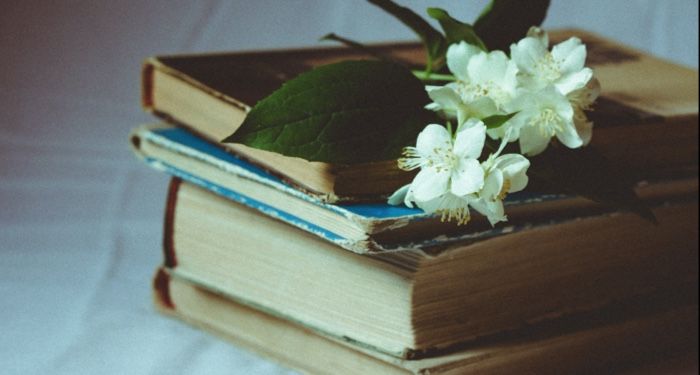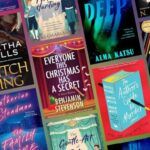
The Inheritance of Books and Patriarchal Narratives
Books are probably one of the most personal and telling relics of a life – books that we read over and over again, books that we buy but do not read, books that move us and shape our lives, books that we scribble in, books that we write about. There have been many bibliophiles in my family, and I inherited a large collection of books long before I bought my first volume.
My maternal grandfather passed away a year before I was born. I still feel like I know him, from the stories of my mother and grandmother, and from his bookshelves. He had a voracious appetite for books, which he tried to inculcate in his children by buying them beautifully illustrated Bengali translations of Russian children’s books. These have been some of my most prized possessions since childhood. They bear the marks of two generations of little readers, pencil marks left by my mother as she traced the drawings, and markings scribbled by me to indicate the day’s progress as I used them as textbooks for my classroom of dolls.
My grandfather was passionately interested in the history of his town, which used to be the capital of a princely state, and continues to be abuzz with gossip about hidden passageways full of snakes and secret chambers full of skeletons and treasure. He collected obscure books about the town, which he covered carefully with newspaper – books that still grace his bookshelves, worn but beloved. My grandfather was a very organized reader. He subscribed to multiple magazines, and the issues are all chronologically arranged. He was an amateur book binder and would fix battered books with his own hands. One of his bookshelves housed a box of book binding tools.
Sharing space with books and periodicals on my grandfather’s bookshelves are his journals, handwritten little magazines that he used to publish with a group of friends, and a scrapbook filled with newspaper cuttings. All these paraphernalia present him to me as a living, breathing person – creative, curious and in possession of a keen eye for the hope and humor of everyday life.
My paternal grandfather, dadu, in whose affectionate presence I had the great fortune of growing up, took great pride in the fact that his was a family of readers. He would recount fondly how his father, my great grandfather, a farmer in a village, possessed only one novel, but had read it so many times that he knew it by heart. Dadu had to struggle financially for most of his early life, and hardly ever had money to spare on textbooks, let alone for recreational reading. But he read voraciously. He borrowed books from rural libraries (and sometimes forgot to return them), and bought mangled second-hand books whenever he could.
My father and uncle G inherited his passion for the written word. Dadu worked hard for his kids’ education and tried to make sure they were never short of reading material. Still, most of the volumes of fiction from my dad and uncles’ childhood are gifts from friends and prizes they won at school. When they moved out for college and were sanctioned a monthly allowance, both of them used a major portion of their allowances on books. These books were deeply cherished, as is evident from the careful inscriptions of their names and the date and place of buying on the first page. Their collection grew rapidly as they started working. Through their collection of books, I know their joy of buying the first book with their own money, the names of friends with whom they were comfortable enough to pinch from, the book fairs they visited, their uncertain foray into Russian literature and the evolution of their tastes in literature. Even as we drift apart in life, we will always share a tender familiarity within the pages of these books.
Growing up, I mostly read books from my family’s extensive collection, and my grandfather, father and uncle were relieved to see that the love of reading had been passed on to another generation. But as I grew up, I began to notice a marked gap in my family’s collection – almost all books were written by upper caste men (the Indian equivalent of the dead white guy).
My mom did not contribute to our collection of books, but she had defined my worldview with her empathy and her kindness, and her endless reserves of patience. I was able to identify the gap in my reading. I could see that the depictions of social inequality in the works of most authors I read was shallow. But even this knowledge did not completely protect me from the toxic effects of undiversified reading. A very direct impact was the body image issues that I am still struggling to grow out of. Almost all the books that I grew up reading, both the titles in our collection and the popular books that I discovered on my own, spent a lot of time discussing the appearances of their heroines – who were all beautiful in the same way. To this day the introductory description of Susan – the codebreaker heroine of Dan Brown’s Digital Fortress whom I intensely admired – as having “full and firm breasts” is etched in my mind.
As I discovered internet as a source of book recommendations, I began to actively seek out women’s narratives. Life became a lot less lonely. I also began to prioritize stories by and of those oppressed by the caste system and a heteronormative social structure. For I had seen in the casual casteism and sexism of the men I used to look up to, and in the misogyny that I internalized as a young reader, the perils of undiversified reading.
In my childhood and adolescence, books opened up a wide world of possibilities, stories fascinated me, and I loved escaping into the magical worlds of fantasy novels. As I diversified my reading, my connection with books only deepened. I felt seen when I read Hunger by Roxane Gay. Elena Ferrante saw me through one of the most difficult phases in my life. Meena Kandasamy and Arundhati Roy told me I was not alone in my outrage.
I wonder what our bookshelves would have looked like if patriarchy had not deprived us of half of our inheritance. If my paternal grandmother had been given the opportunity to get a formal education. If my maternal grandmother had been allowed to work outside the home. If my mother did not have to shoulder the triple burden of a career, taking care of the family, and fulfilling social obligations alone; if she had the time to read for pleasure. If society, since its inception, had not been dominantly patrilineal. I look for the stories of my female ancestors in the scant historical studies that focus on them, and in historical fiction. I dream of writing their stories in a book of my own someday.








